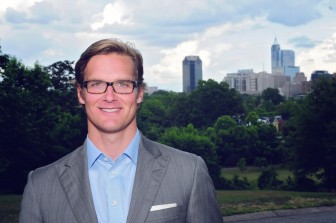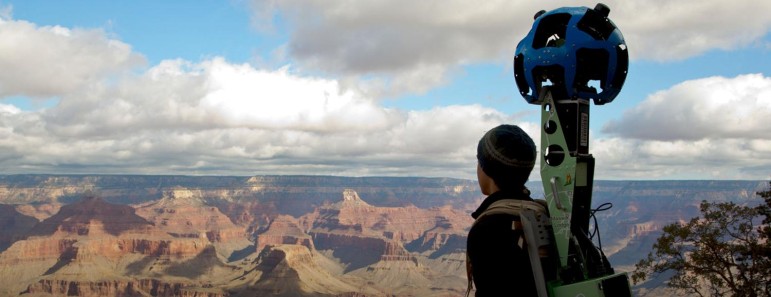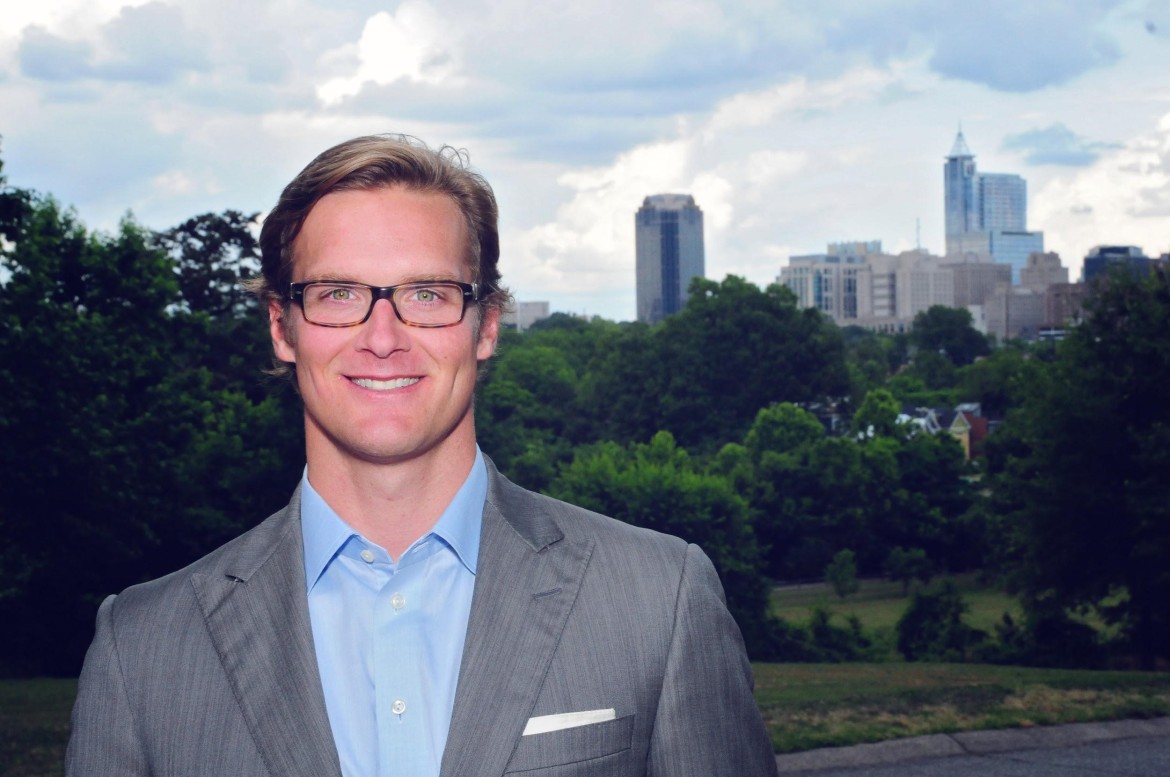This is the latest in our ongoing interview series, On The Record. Last week, we had the chance to talk with Raleigh City Councilor Bonner Gaylord to discuss bikeshare, greenways and Raleigh’s growing sharing economy.

Bonner Gaylord
Bonner Gaylord has experienced Dorothea Dix Park in a way almost no one else has: strapped into a Google Trekker backpack.
The 30-40 pound apparatus, on loanto the City through a partnership with Google, allows users to record walking paths and greenways in the same way its Streetview Cars record roads and boulevards.
Although a fair amount of training was required before donning the device, Gaylord said it was well worth it.
“I just put it on, hiked around for a while and got some great footage of Dorothea Dix,” he said of the experience. The Record was told by City staff there are no updates available on the Trekker program at this time.

A promotional image for the Google Trekker program
Mapping Raleigh’s parks and greenways isn’t the only way Gaylord thinks technology can help improve the city, although he doesn’t always advocate for taking such a hands-on approach.
“I think that we need to be accepting and helpful when innovative technology and new services are available within our city,” Gaylord said.
While there has been some recent pushback against a proposed legalization of short-term rental services like Airbnb, Gaylord said he hadn’t seen them having much of a negative impact to date and believes that legalizing them would allow them to mitigate any potential impacts.
“There’ve been very few issues with Airbnb; the issues we’ve had across the city are generally with long-term rentals; we get a lot of police calls for those, but the short-term rentals have been far less impactful,” Gaylord said.
“Until we see those impacts, I don’t know if we need to start implementing regulations.”
Gaylord said by embracing the sharing economy and allowing for services such as Airbnb, BRBO and Uber to thrive, the City can help to improve the lives of both its long-term residents and its temporary visitors.
“Any sort of material or tool sharing; anything like that is a wonderful development. For the city to be rejecting those efforts just seems backward to me.”
Getting Off The Couch
Despite the innumerable ways in which technology can help connect and inform a city’s residents, there’s still no substitute for the impact regular, in-person meetings can have on a neighborhood.
That’s part of the reason Gaylord, along with the two challengers for his Council seat in last year’s election, formed the District E Neighborhood Alliance in January 2016.
Once a month, Gaylord, DeAntony Collins and Edie Jeffreys host a meeting to talk about issues in the city and how the City can better deal with those issues.
“We’ve talked about growth issues and the UDO in one meeting; at another we talked about stormwater and how the City deals with its impacts and how citizens themselves might utilize the City’s stormwater services or grants.”
While Gaylord acknowledges the arrangement of co-hosting a monthly meeting with two former competitors is a bit unusual, “it’s working for us, and we want to continue doing it for as long as we can.”
In addition to encouraging his neighbors to come out to the District E meetings, Gaylord has also been one of the biggest proponents of the City’s newly adopted Bikeshare program.
“This is a fantastic new transportation and recreational amenity for our city; our charge as the City Council is that there’s three areas where we’re responsible, and that’s transportation, recreation and economic development,” Gaylord said.
“Bikeshare accomplishes all of those; it helps us with the upcoming transit referendum, it establishes a better last mile of transit, it gets people using them in the outdoors, it gets them off their couch.”
Gaylord said the program would also be a boon to tourism, as it would allow visitors to more easily access a broader swath of the city, which he believes would be a significant driver of economic growth.
“I know I’ll enjoy coming downtown — I can’t put five bikes on the back of my car, but I can come down and rent five bikes and ride around with my family,” he said.
In addition to offering bike rentals, Gaylord said the City needs to constantly work to improve its road infrastructure to encourage more bicycle and pedestrian commuting.
“We need to continue to think about our streets for all users,” he said.
“So we need to add pedestrian improvements, we need to add cycling facilities [ed. note: bike lanes are classified as one type of cycling facility], we need to make sure the roads work for buses and cars too.
“It’s really thinking about the entire streetscape, thinking about the kind of environment that all people with all modes of transit would enjoy being a part of. It’s thinking through the human scale as well as the transportation part.”
